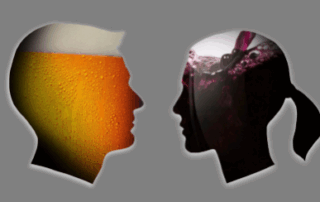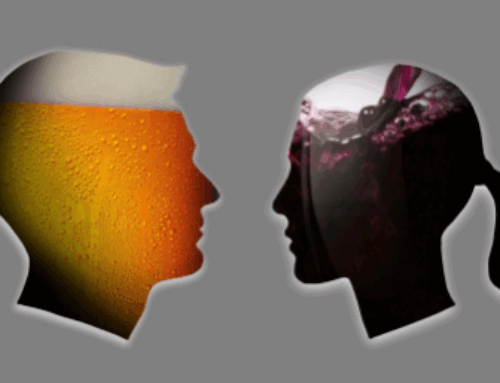In the recovery world, a trigger is a sensory experience that can lead someone to misuse substances. When people feel triggered, it is often because they are reminded of something that is difficult to deal with on an emotional or physical level. This topic is especially important to recovery, as trauma and mental health struggles can be found at the root of many peoples’ substance use disorder.
Some triggers are vague, like a scent or a sound. Other triggers are more overt, like seeing a specific landmark or recalling a traumatic event. What all triggers share, though, is their ability to affect a person—sometimes quickly, sometimes gradually—which, for many, leads them to use or misuse of substances as a response.
Two Types of Relapse Triggers: Internal and External
While triggers can come in many different forms, there are two main categories:
- Internal Triggers – These are triggers that arise from one’s inner life and thoughts. Internal triggers may be encountered by recalling traumatic memories or having uncomfortable dreams. Because people have limited control over what pops into their head or appears in their dreams, internal triggers can be unavoidable, making them sometimes difficult to deal with.
- External Triggers – These are triggers that arise from the environment. External triggers in recovery can take many forms. These can include certain times of year or holidays, as well as places where one used to buy or use substances. Some external triggers can be avoided to prevent substance misuse or a relapse from occurring as a result. Other external triggers are encountered regardless of one’s actions.
Identifying Triggers as They Arise
Many internal and external triggers are easily identifiable as they can be clearly connected to one’s substance misuse. But there are also triggers that are more difficult to identify because they don’t have a direct connection to substance misuse, but instead result in the use of substances by setting off a subtle chain reaction. For example, someone might see substance use imagery on a TV show and later romanticize using. Next, they might decide to skip a meeting or therapy session. These events can seem unrelated, but each step leads to the next and can snowball, eventually resulting in a relapse.
Because triggers are not always familiar and noticeable, it’s important for people in addiction recovery to be observant of what triggers them. Developing the self-awareness to know when something is affecting someone’s mood or emotions can take time and consideration.
When a relapse occurs, or even when someone becomes triggered but doesn’t relapse, it can be helpful to ‘play the tape through’ to better understand how one event led to the next. Was there an emotion associated with the event? Did it induce a feeling of fear, sadness, or anger? When triggers are recognized, they are easier to address and respond to.
Processing and Responding to Triggers
Triggers can take many forms and can affect people in many ways. Because of this, there isn’t one “right” way to successfully respond to or protect oneself from a trigger. Like substance use disorder, triggers are most effectively responded to on an individualized basis. For many triggers, it can be helpful to discuss the emotional response it generates and how that leads to substance misuse. This deepened understanding can help someone realize when they’re being triggered and take necessary steps to stop it.
Some triggers can be addressed with gradual exposure and will dissipate with time. For example, if someone is triggered by going to the beach because it was where they frequently drank, they may choose to return to the beach after getting sober—perhaps for meetings or other recovery-related events—and eventually they will begin to associate the beach with positive memories rather than memories of drinking.
For other, more intense triggers, such as returning to an area where a traumatic event happened or meeting with someone that the individual used substances with, avoiding the trigger altogether may be the more appropriate response. How far along someone is in their recovery, how stable they feel emotionally, and how strongly the trigger affects them should all be considered when deciding how to respond.
Navigating Triggers in Recovery
Maintaining one’s recovery despite the existence of triggers can be overwhelming at times. Triggers can arrive seemingly out of nowhere and result in serious cravings for substances. They can lead to latent emotional responses that only gradually have consequences.
At the New England Recovery Center (NERC), our addiction treatment program helps people identify their individual triggers and learn coping skills and other tools for managing them. By staying aware of their surroundings and paying attention to their emotional responses to stimuli, people in recovery have a better chance of reacting adequately to hidden relapse triggers as they arise. And by talking to a support group or mental health professional about how a trigger makes one feel, it can help to process the trigger and establish an effective response.
If you or a loved one are struggling with addiction or co-occurring disorders, call the New England Recovery Center today at 1-877-MyRehab.










